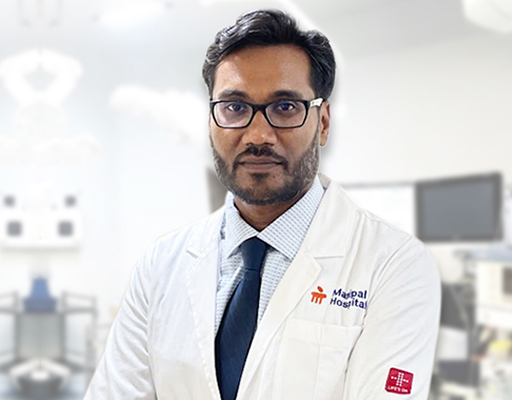-

WHY DO YOU NEED OPEN INGUINAL HERNIA REPAIR TREATMENT?
Hernias are among the most common medical problems in the world. They refer to the abnormal protrusions of a viscus or part of it through a normal or abnormal opening in a cavity which in most cases usually is the abdomen, in the groin.
Among hernias, inguinal hernias are the most common hernia with nearly 73 percent prevalence. This is due to the fact that the muscular anatomy in the inguinal region is weak, and also due to the presence of natural weakness like a deep ring and cord structures.
Are you one of those with an inguinal hernia?
If so, then waste no more time. Get your inguinal hernia treated by a hernia surgery doctor in Bangalore.
WHY INGUINAL HERNIA TREATMENT IS REQUIRED?
When soft fatty tissue or a part of your bowel like the intestine protrudes through your groin at the top of your inner thigh, what happens is it pierces through a weak spot in the surrounding muscle wall (that is, the lower part of the abdominal muscle wall) into an area called the inguinal canal, in or near the groin. This leads to a bulge which can be painful if you happen to cough or bend over or lift a heavy object.
The bulge often appears when you have lifted something and disappears when you lie down. This is called an inguinal hernia.
Generally, many hernias do not cause pain. Likewise, inguinal hernias do not cause pain nor are they dangerous. But the issue is the problem will not go away nor will improve on its own. Instead, it can lead to life-threatening complications. Then it can become extremely painful and also it can morph into a bigger hernia.
In such a situation, it’s advisable to consult a specialist doctor who recommends what is called Inguinal Hernia Treatment.
Although inguinal hernia treatment is not always required in such cases, the inguinal hernia will not get any better. Instead, it can become more life-threatening and even untreatable later. Overall, yields positive results despite some side effects and risks resulting from the treatment.
WHAT CAUSES INGUINAL HERNIA?
Inguinal hernias occur predominantly in men. In many cases, it results from aging, even though it can occur at any age. As a person gets older, what happens is that the muscles surrounding the abdomen become weaker. This will make it easy for a
soft fatty tissue or a part of your bowel like the intestine to protrude through into the groin at the top of the inner thigh and then pierce through a weak spot in the surrounding muscle wall (that is, the lower part of the abdominal muscle wall) into an area called the inguinal canal
Factors that can result in inguinal hernia are:
- The pressure is put on the abdomen. For instance, straining when sitting on the toilet (this happens if the person has constipation); carrying and pushing heavy loads, OR a persistent heavy cough;
- Nausea or vomiting or both;
- Sudden pain that gets intensified into a more intense pain;
- Inability to move the bowels or release gas;
- Hernia bulge that later turns dark or purple or red; and
- Fever.
Aside from the above, if the hernia cannot be pushed back, then the contents of the hernia can get trapped in the abdominal wall. This will strangulate the hernia which in turn will cut off the flow of blood to the tissue that’s trapped. This can get serious if the problem is not resolved at the earliest.
INGUINAL HERNIA IN CHILDREN
Inguinal hernia is not confined to just adults. It can occur in children and even newborn babies.
If it occurs in children or newborn babies, it can be due to a weakness in the abdominal wall that is present at birth.
In newborn babies, at first, it will not be noticeable. But when the newborn baby starts to cry or cough or strain during a bowel movement, then the child or newborn baby might get irritated and develop less appetite than usual. ON THE other hand, in children, it is more likely to be discovered. This can be detected when the child happens to cough or strain during a bowel movement or stands for an unusually long time.
WHEN TO SEE HERNIA SURGERY DOCTOR IN BANGALORE?
You need to a hernia surgery doctor in Bangalore if you notice,
- Hernia bulge has become dark or purple or red; OR
- A painful or noticeable bulge in the groin on either side of the pubic bone. This bulge is most likely noticed when you are standing and can feel it when you put your hand directly over the affected part; OR
- Any kind of signs or symptoms relating to strangulated hernia.
Inguinal hernia treatment will be required if you happen to develop complications like
- When a part of the bowel gets stuck in the inguinal canal. This will cause nausea or vomiting or stomach pain. In some cases, it causes a painful lump in the groin; OR
- When a section of the bowel gets trapped and the flow of blood is cut off. This is called strangulation which will necessitate an emergency inguinal hernia treatment within hours. The treatment will help to release the trapped tissue and restore back blood supply thereby preventing the bowel section from dying.
In the majority of cases, inguinal hernia treatment is usually recommended if the person has a hernia that causes unbearable pain; continual symptoms that gets serious; or any other complications that become serious later.
While inguinal hernia treatment will help to push back the bulge into place, get rid of the hernia, strengthen the weak areas in the abdominal wall, and prevent the development of any serious complications, in some cases the hernia could return after the inguinal hernia treatment.
WHAT HAPPENS DURING INGUINAL HERNIA TREATMENT?
Inguinal hernia treatment can be performed in two ways.
- Open inguinal hernia repair. This treatment involves a cut made in the abdomen so as to push the lump back into the abdomen.
- Laparoscopic (Keyhole) surgery. This treatment is less invasive but a more difficult one. It involves several smaller cuts made into the abdomen so as to allow the doctor to use varied special instruments for repairing the hernia.
Both types of surgeries have their own merits and demerits. Ultimately, it is the doctor who will decide which surgery is better suited to repair the hernia.
AFTER TREATMENT
The patient can go home the same day or the day after the surgery depending on his/her condition. For safety reasons, it is better to follow what the doctor says and also follow the doctor’s instructions on how to look after the affected part and get back to normal. The instructions will generally include what diet must be taken to avoid constipation; how to care for the wound; and how not to strain the wound too much and put an undue burden on self.
Inguinal hernia repair treatment in most cases is an outpatient procedure. This means that the patient can go home on the same day as the treatment. However, the patient will be asked to stay back in the hospital if you happen to show complications.
In case, the patient has open inguinal hernia repair surgery, the recovery process can take up to six weeks. On the other hand, with laparoscopic surgery, the recovery process is faster and the patient can go back to normal activities within a few days.
RISKS INVOLVED IN INGUINAL HERNIA TREATMENT
Even though open inguinal hernia repair involves few risks, around 10 percent of hernias can return back at some time point after the repair surgery; and around 2 to 4 percent of hernias can return within a period of 3 years.
Coming to risks resulting from open inguinal hernia repair surgery, include
- Buid-up of blood or fluid in the space left by the hernia. However, the space gets better in most cases even without treatment.
- Pain and numbness in the groin area. This is caused by a nerve getting damaged or trapped during the repair surgery process.
- Damage to the blood supply area (which supplies blood to the testicle).
- Damage to the vas deferens, which means the tube that carries sperm to the testicles.
- Painful swelling and bruising of the testicles or base of the penis. This happens in men.
Overall, the complications take place mainly in people aged over 50 years of age; or known to smoke a lot; or are prone to catch another illness like breathlessness or heart issues.
CONCLUSION
If you are born with an indirect inguinal hernia, there is nothing much that can be done.
However, direct hernias that occur over time can be prevented. Like treating constipation to prevent straining when having a bowel movement; treating persistent cough, or treating enlarged prostrate which causes you to strain when urinating.
Get treated at the best hernia hospital in Bangalore, M H Surgery by the best hernia surgery doctor in Bangalore.

Author: DR. MANJUNATH HARIDAS (MD FACS FICS)
Dr. Manjunath Haridas is one of the leading surgeons for Gastrointestinal Sciences in Whitefield, Bangalore. His area of expertise includes Gastrointestinal Surgery - Colon Rectum, Foregut Advanced Laparoscopic Surgery, and Minimally invasive surgery. He is Honored by the American Board of Certification, fellow Of the American College of Surgeons, SAGES membership and more.

